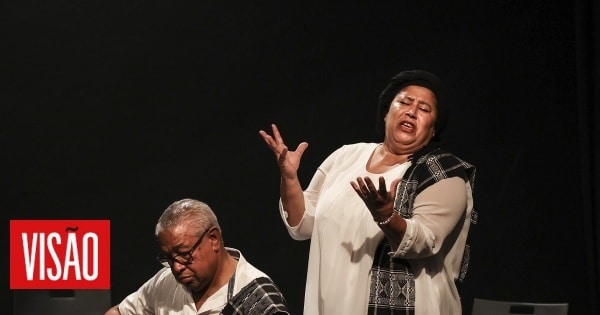“Tradisson d´nôsilhas” is the name of the show organized by Voz Terra, a choir group specially dedicated to the interpretation of traditional Cape Verdean music, which takes the stage at the Centro Cultural de Carnide.
The morna, the coladeira, the funaná, the batuque, the classical and Portuguese guitar and the Cape Verdean guitar will be the backdrop of a story that begins whenever a Cape Verdean leaves his land to escape poverty.
“The show begins with the Cape Verdean leaving Cape Verde because of the difficulties and all his journey, the feeling of homesickness, the loves he leaves in his land and the anxiety of returning”, told the Lusa agency Heloisa Monteiro, director do Voz Terra, guitarist and daughter of composer Jotamonte, author of the famous morna “Dez Grzinho Di Terra”.
And she adds: “It’s the project of a lifetime”, seeing this show as the culmination of many other initiatives she developed with her students, as a teacher, in the sense of disseminating Cape Verdean music.
A work that began before Cesária Évora reached stardom and showed the world’s Morna and Cape Verde. Today, Heloisa Monteiro considers that Cape Verdean music is well known, but the composers of the songs that are in the mouths of so many people are not.
“Everyone knows “Sodade”, Cesária’s most famous song. But few people know who composed it (Armando Severino Soares),” he said, hoping to contribute to a greater understanding of the many who have enriched Cape Verdean music.
The trip that will be told and sung on Saturday also includes batuque and funaná, banned during the Estado Novo, and a tribute to women, in the form of morna.
“The morna is dedicated to women and we will have an interpretation by Luísa Amaro, partner of Carlos Paredes, who interprets the theme that B.Leza wrote for his wife: Luísa”.
Cesária Évora, Titina and Celina are the divas honored in this show, which also has space for a tribute to the great composers.
And to give voice and music to this story, the show features several special guests, such as Armando Tito, Maria Alice, Zenaida Chantre, Sofia Carvalho, Carla Correia and Charlie Mourão.
Intervention music is also featured in this work, which ends with an appeal for the batuque to be classified as Intangible Cultural Heritage of Humanity by the United Nations Educational, Scientific and Cultural Organization (UNESCO), as happened with morna, in 2019. .
Heloisa Monteiro is hopeful that the concert “Tradisson de Nôs Ilha” will gain wings and run many other venues and is already dreaming of a project that she has cherished for decades: A poetic journey through the islands of Cape Verde, which, she recognizes, needs well over an hour and a half.
SMM // VM

